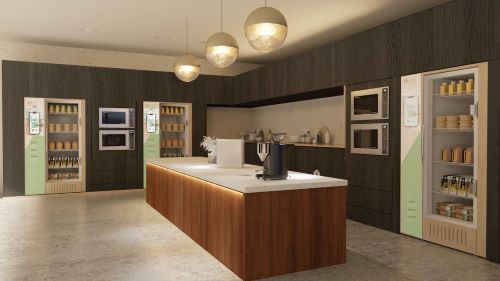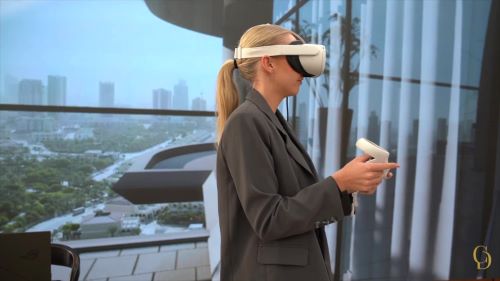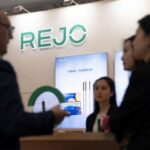lechef’s RFID Technology Empowers Healthy Workplace Catering in KSA

RFID (Radio Frequency Identification) has become an integral part of everyday life. As a technology that passively identifies tagged objects using radio waves, it is utilized in various commercial, industrial and personal applications. From tracking items in a supply chain to monitoring items checked out of a library, its potential for innovation and automation keeps growing. Similarly, lechef – a novel foodtech startup based in Saudi Arabia, is utilizing RFID technology to pioneer a first-in-the-region workplace catering concept that reimagines workplace dining with smart fridges – also known more commonly as ‘smart canteens’
Fundamentally, lechef offers unique office catering through smart canteens stocked with wholesome, freshly prepared meals that blend seamlessly with office settings, giving workplace employees a convenient way to grab meals on the run. An RFID device installed in the canteen instantaneously recognizes the meal selections and quickly completes automatic payment by deducting it from the user’s pre-configured payment method. Consequently, businesses can boost their productivity and promote workplace engagement and well-being by encouraging employees to stay on workplace premises during breaks and consume nutritious meals.
A unique feature of RFID tags for lechef is its ability to enable expiration date monitoring. Traditional bar codes tend only to include basic information, such as the product name, but neglect to include a distinctive product ID. On the other hand, RFID tags can be configured to include unique product IDs, which facilitate the tracking of expiration dates for individual products. This can then be used to implement automatic dynamic pricing and discounting for food and beverages according to their shelf life, thereby reducing food waste and minimizing unnecessary logistics trips to remove the expired products, which will then have knock-on effects of reducing carbon dioxide from travel. Furthermore, Industry leaders have experienced 50% food waste reduction in comparison to traditional restaurants when enabling dynamic pricing through RFID technology in a similar way.
“The RFID technology helps us easily track the real-time movement of the food and beverage items inside the canteen, thus giving us full control over our inventory without the need for staff to monitor it. When coupled with our analytics, we can obtain raw data, including the time of purchases and consumption habits, which helps us optimize meal delivery times and available meal options to ensure that we are prioritizing popular meals and stocking sufficient items at the right time. This dramatically saves time, improves traceability and minimizes food waste in the long run,” commented Eugen Brikcius, Founder of lechef.
lechef’s use of RFID technology is supported by reliable logistics efforts to deliver meals to its smart canteens daily, offering freshness and variety in choice while eliminating the need for manual restocking by workplace employees and the need to travel off-site to find food. Overall, its efforts to improve the variety of healthy and tasty meals while smoothening the experience of selecting and receiving food aim to provide a comfortable home-like scenario for working individuals without the need to stock the canteen or prepare food.
Moreover, the next food revolution is proving to be a key driver for the adoption of RFID technology as consumers and workplace employees seek food and beverages tailored to their specific nutritional, health and even environmental requirements. As a result, more players within the global F&B and retail industry are increasingly adopting RFID technology to replace traditional bar codes, beginning with relatively higher-priced items such as prepared meals and on-the-go assortments.
For more information about lechef, please visit: https://lechef.me/home/
Last Updated on 2 months by News Desk 1












